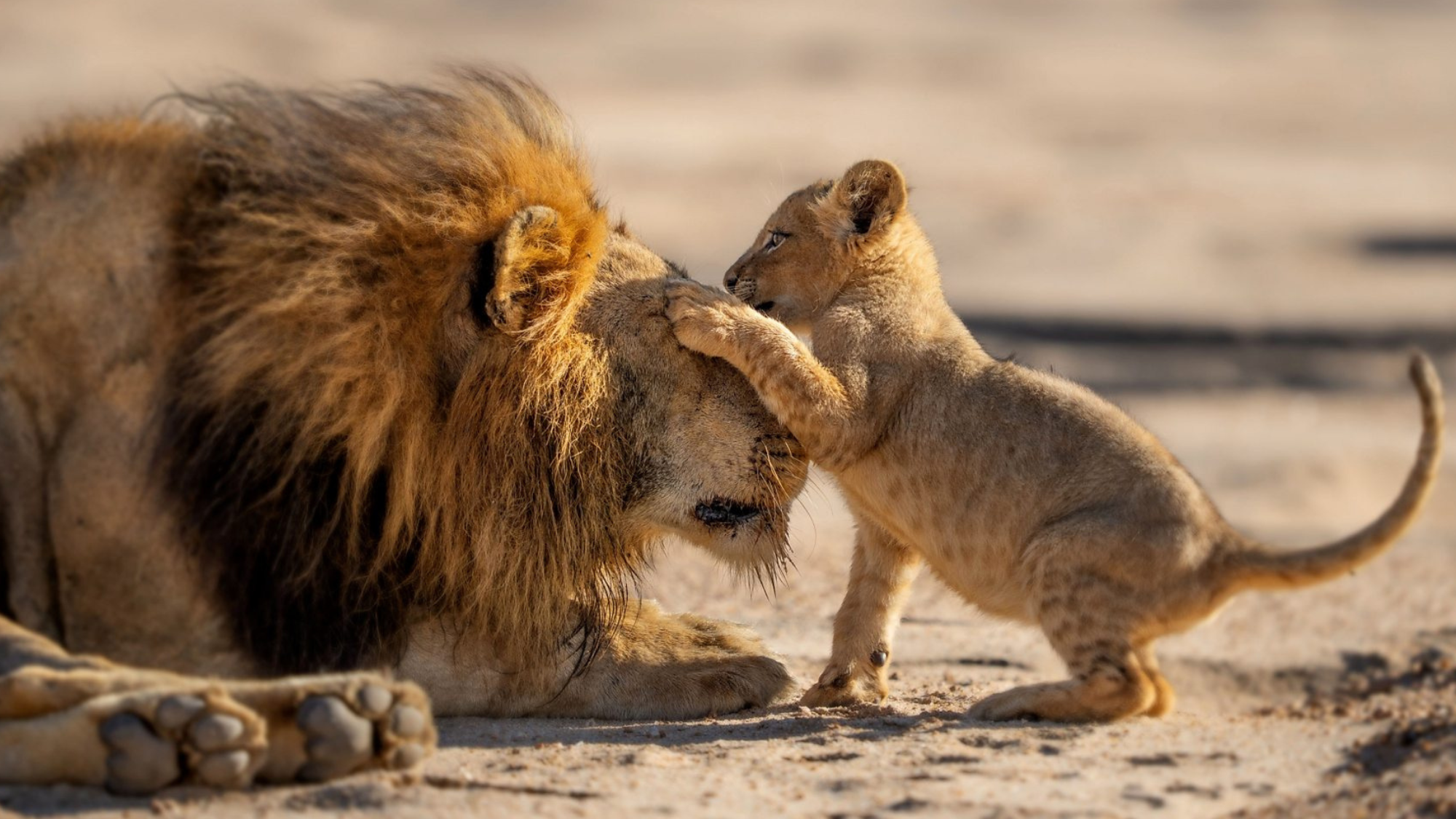Parenthood: David Attenborough's nature series is surprisingly sinister
Expect 'sublime' visuals, 'exquisite' narration – and matricidal spiders

A free daily email with the biggest news stories of the day – and the best features from TheWeek.com
You are now subscribed
Your newsletter sign-up was successful
If you grumble that your kid is "never off their phone" or leaves "mouldy cups festering in their bedroom", watch "Parenthood" and be grateful "that you are not an African social spider", said Carol Midgley in The Times. "At least your children (fingers crossed) won't eat you alive."
The scenes of spiderlings "devouring their poor mother like she was a Deliveroo pizza" feel like something out of a horror film. "And there was me assuming from the title that this might be a sweeter, cutesier David Attenborough offering. How naïve!"
Thankfully, the series features "plenty of non-arachnid wildlife" too, said Neil Armstrong in The i Paper. Over the five episodes, we meet endangered Iberian Lynx kittens playing together in a derelict barn in Andalucía, and watch a pair of burrowing owls "work together to raise a clutch of chicks". There's also an "extraordinary" sequence, shot at night in the Tanzanian bush, that uses infra-red cameras to reveal a hippo and her calf being "menaced by a pride of lions in thickets of dark, dense grass".
The Week
Escape your echo chamber. Get the facts behind the news, plus analysis from multiple perspectives.

Sign up for The Week's Free Newsletters
From our morning news briefing to a weekly Good News Newsletter, get the best of The Week delivered directly to your inbox.
From our morning news briefing to a weekly Good News Newsletter, get the best of The Week delivered directly to your inbox.
Diligently filmed in 23 countries over three years, the show combines Attenborough's "exquisite" narration with the usual "sublime" visuals, as the seasoned broadcaster charts the trials and tribulations of animal parenthood, said Helen Coffey in The Independent.
The most moving scenes focus on the plight of a young Cape gannet "attempting her first flight". When she crash-lands in the sea, she's a "sitting duck" for the fur seals who are "eyeing her hungrily". Yes, the natural world can be "cruel" but that's not what made me cry out in distress. "What's happening on screen isn't natural. David said so himself!" Seals don't usually hunt gannets, Attenborough tells us in his "distinctive, husky tone", but, in this "depleted ocean", they're forced to take any kind of prey.
Later, we're taken to the Californian kelp forests where we're told millions of tonnes of plastic have been "dumped". The sight of a "pale octopus laying her eggs inside a discarded piece of piping prompts another stab of environmental guilt".
Aside from the "spider matricide", there is "nothing here we haven't seen before", said Anita Singh in The Telegraph. "Or that's how it feels, anyway." We've been "spoilt" with incredible nature documentaries over the years and we know what to expect – right down to the "obligatory 'how we made it' section at the end".
A free daily email with the biggest news stories of the day – and the best features from TheWeek.com
The "sappingly familiar narrative" of a "cunning lion" picking off a buffalo in the African savannah plays out in the opening episode "before we have blown the steam off our tea", said Jack Seale in The Guardian. But the "suspicion" that there isn't anything new here is "soon dispelled" when we travel to a reef off the Indonesian coast and meet an "ingenious" boxer crab mother using anemones as weapons to protect her young from "ugly, crusty cuttlefish attacks".
As ever, there is "spectacular" camerawork throughout and, when we're introduced to a mother gorilla "tenderly cradling her baby", it's "hard to resist anthropomorphising", said Midgley in The Times. "Apart from the spiders, obviously. Blimey: talk about ingrate offspring."
Irenie Forshaw is the features editor at The Week, covering arts, culture and travel. She began her career in journalism at Leeds University, where she wrote for the student newspaper, The Gryphon, before working at The Guardian and The New Statesman Group. Irenie then became a senior writer at Elite Traveler, where she oversaw The Experts column.